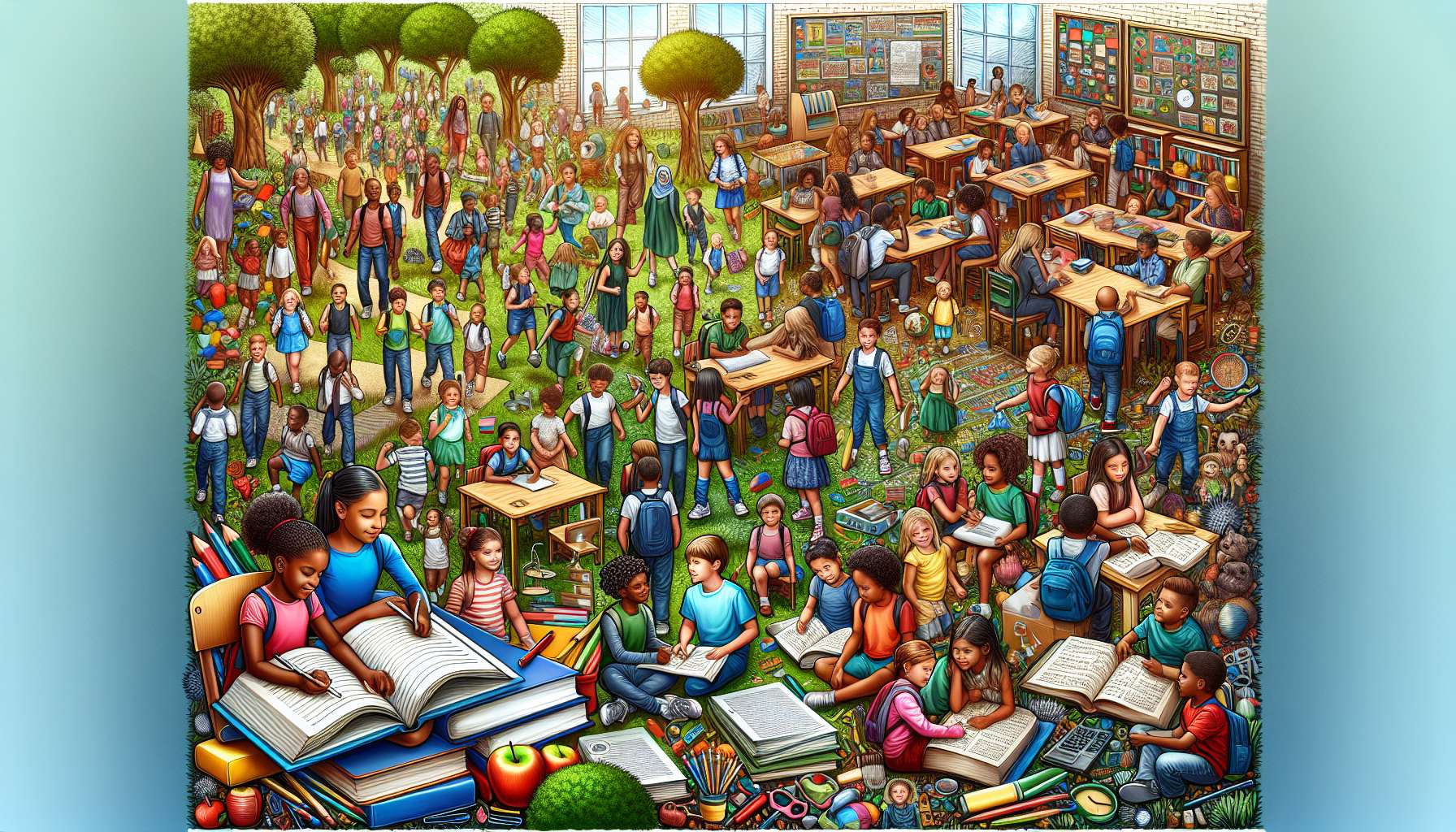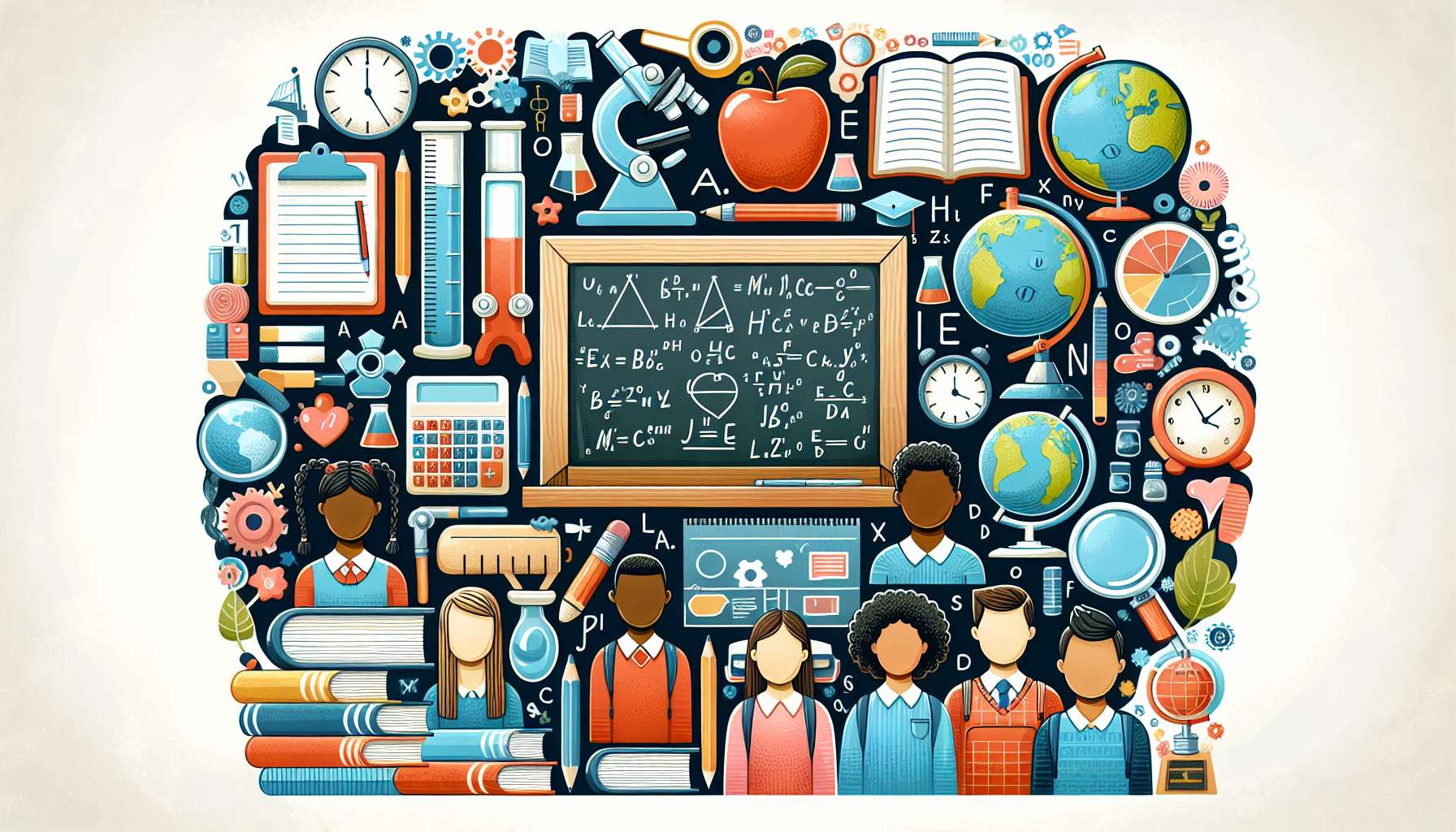Building Blocks of Knowledge: Unveiling the Foundations of Understanding
Knowledge is the bedrock upon which human progress is built. It shapes our understanding of the world, influences our decisions, and drives innovation. But have you ever stopped to ponder what constitutes the building blocks of knowledge? How do we acquire, organize, and apply information in our daily lives? In this comprehensive exploration, we delve deep into the essence of knowledge, uncovering its fundamental components and unraveling its intricate tapestry.
The Nature of Knowledge
At its core, knowledge can be defined as the awareness or familiarity acquired through experience or education. It encompasses facts, information, skills, and expertise that enable individuals to make sense of the world around them. The acquisition of knowledge is a multifaceted process that involves perception, cognition, and reasoning. From the simplest of observations to the most complex scientific theories, knowledge forms the foundation of human intellect and civilization.
One of the key distinctions in understanding knowledge lies in its classification into two main categories: explicit and tacit knowledge. Explicit knowledge refers to the type of knowledge that can be easily articulated, codified, and shared through formal means such as books, lectures, or manuals. On the other hand, tacit knowledge is more elusive, residing in the minds of individuals and often difficult to express or transfer to others. This distinction highlights the intricate interplay between individual experience and shared understanding in the realm of knowledge.
The Role of Perception and Experience
Perception serves as the gateway to knowledge, allowing individuals to interpret sensory information and construct mental representations of the world. Our senses sight, hearing, touch, taste, and smell play a vital role in shaping our understanding of the environment. However, perception is not a passive process; it is influenced by our prior experiences, beliefs, and cultural norms. For example, the way we perceive colors, shapes, or sounds can vary based on our personal background and context.
Experience, both individual and collective, plays a significant role in the acquisition and refinement of knowledge. Through firsthand observations, interactions, and experiments, we gather insights that contribute to our intellectual growth. Moreover, shared experiences within communities, societies, and cultures shape our collective knowledge base, fostering collaboration, innovation, and cultural evolution. From ancient oral traditions to modern scientific breakthroughs, the accumulation of experience forms the building blocks of our shared knowledge.
Cognitive Processes and Learning Mechanisms
Understanding how we learn and process information is essential in unraveling the complexities of knowledge acquisition. Cognitive processes such as attention, memory, perception, reasoning, and problem-solving play a crucial role in shaping our mental frameworks. These processes enable us to encode, store, retrieve, and manipulate information, leading to the formation of coherent knowledge structures.
Learning mechanisms vary across individuals and contexts, encompassing a wide range of modalities such as visual, auditory, kinesthetic, and experiential learning. Each person has unique strengths and preferences when it comes to acquiring knowledge, reflecting the diversity of human cognition. By leveraging different learning styles and strategies, we can enhance our ability to absorb, retain, and apply knowledge effectively.
Knowledge Representation and Organization
As we accumulate information and insights, the need to organize and structure knowledge becomes paramount. Knowledge representation involves the use of mental models, schemas, concepts, and categories to make sense of complex information. These cognitive frameworks help us categorize, relate, and recall knowledge efficiently, enabling us to navigate the vast sea of information with ease.
One of the key challenges in knowledge organization is the balance between generality and specificity. While broad categories and concepts provide a holistic view of a subject, detailed information and specific examples offer depth and nuance. Finding the right level of granularity in organizing knowledge is crucial for effective communication, problem-solving, and decision-making.
Technology and Knowledge Management
In the digital age, technology plays a transformative role in shaping how we acquire, store, retrieve, and share knowledge. Knowledge management systems, databases, search engines, and collaborative platforms have revolutionized the way information is accessed and utilized. These technological tools enable individuals and organizations to harness the power of big data, analytics, and artificial intelligence to extract valuable insights and drive innovation.
Furthermore, the advent of online learning platforms, virtual classrooms, and interactive multimedia resources has democratized access to knowledge, breaking down traditional barriers to education. From e-books and podcasts to webinars and virtual reality simulations, technology offers a myriad of opportunities for lifelong learning and skill development. By leveraging digital tools and resources, individuals can expand their knowledge horizons and stay abreast of the latest trends and developments in their fields.
Ethical Considerations and Knowledge Sharing
As knowledge becomes increasingly interconnected and accessible, ethical considerations surrounding intellectual property, privacy, and information security come to the forefront. The issue of plagiarism, copyright infringement, and data breaches poses significant challenges to the integrity and trustworthiness of knowledge dissemination. It is essential for individuals and organizations to uphold ethical standards, respect intellectual property rights, and safeguard sensitive information in the digital age.
Moreover, the act of sharing knowledge carries both rights and responsibilities. While open access and collaboration foster innovation and progress, they also raise questions about attribution, accountability, and quality control. By promoting a culture of transparency, integrity, and mutual respect in knowledge sharing, we can uphold the collective value of information and promote a culture of lifelong learning and intellectual curiosity.
Future Directions and Emerging Trends
Looking ahead, the landscape of knowledge is poised for exciting transformations fueled by advances in technology, globalization, and interdisciplinary collaboration. The rise of artificial intelligence, machine learning, and quantum computing promises to revolutionize how we generate, analyze, and apply knowledge in various domains. The convergence of different fields such as biotechnology, nanotechnology, and renewable energy opens up new frontiers for innovation and discovery.
Furthermore, the increasing emphasis on sustainability, diversity, and inclusivity in knowledge creation and dissemination underscores the importance of ethical, equitable, and responsible practices. By embracing diverse perspectives, empowering marginalized voices, and fostering a culture of lifelong learning, we can build a more resilient, inclusive, and sustainable knowledge ecosystem for future generations.
Conclusion
To wrap things up, the building blocks of knowledge are the essential components that underpin our understanding of the world. From perception and experience to cognitive processes and technology, knowledge is a dynamic and multifaceted phenomenon that shapes our intellect, culture, and society. By exploring the intricate interplay between individual and collective knowledge, we can unravel the mysteries of the universe and unlock the potential for limitless growth and innovation.
As we navigate the complexities of knowledge acquisition and dissemination, let us strive to uphold ethical values, embrace diversity, and foster a culture of lifelong learning. By nurturing a curious and open-minded approach to knowledge, we can build a brighter and more enlightened future for all. Remember, the journey of knowledge is a never-ending quest for truth, wisdom, and understanding let us embark on this adventure together.




